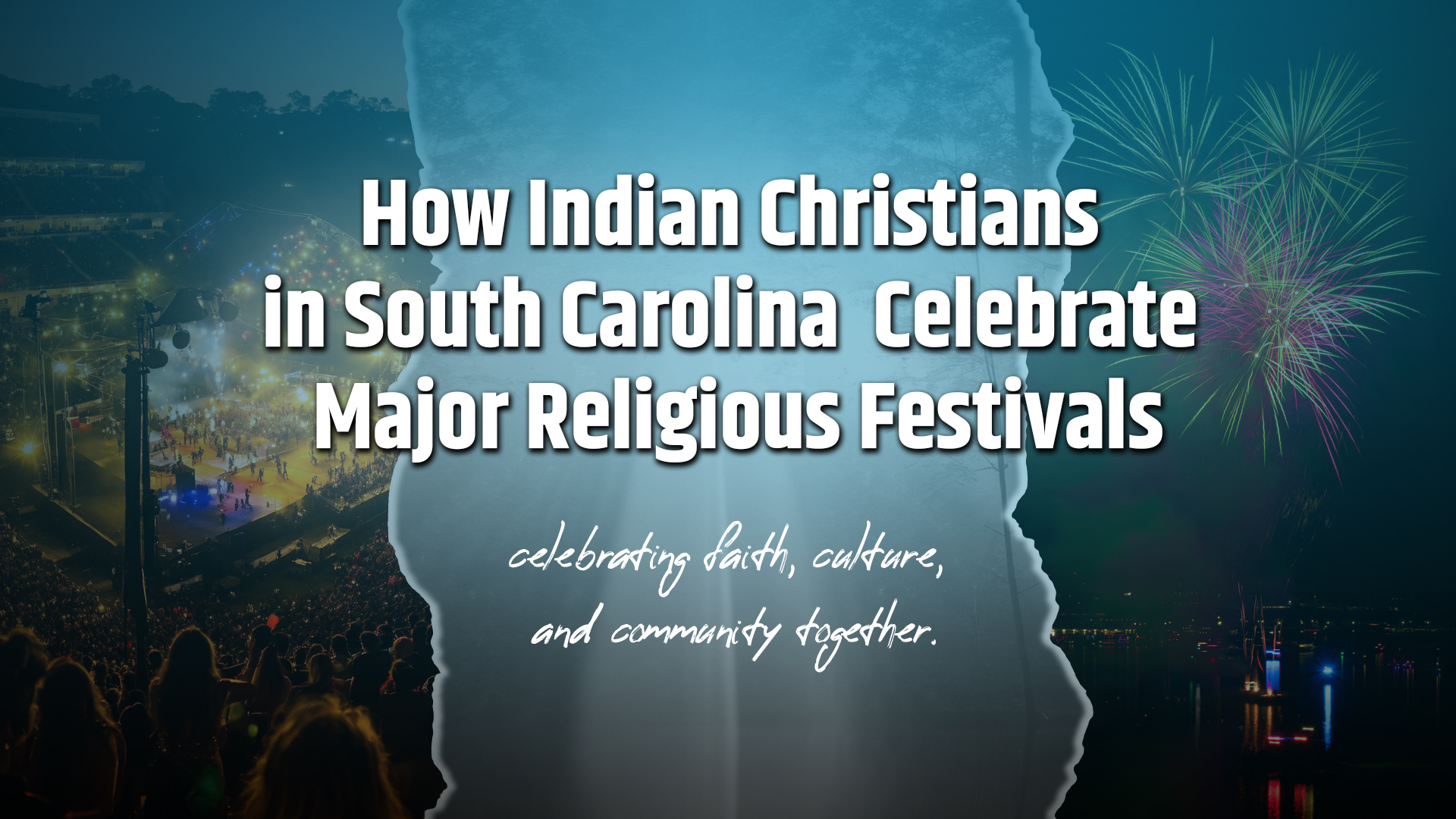
How Indian Christians in South Carolina Celebrate Major Religious Festivals
(Celebrating Faith, Culture, and Community Together)
Introduction:
Indian Christians living in South Carolina blend the rich cultural traditions of India with their deep Christian faith, creating a unique and vibrant celebration of major religious festivals. From Christmas to Easter, these festivals are celebrated with joyous gatherings, traditional Indian foods, and spiritual worship that reflects both their heritage and their devotion to Christ.

How Indian Christians in South Carolina Celebrate Major Religious Festivals
Let’s explore how the Indian Christian community in South Carolina celebrates some of the most significant religious festivals.
- 1. Christmas – A Blend of Faith and Culture:
Christmas is a time of joy, love, and giving, and for Indian Christians in South Carolina, it's also a celebration rich with cultural traditions. Along with the usual Christmas tree, lights, and nativity scenes, families incorporate Indian elements such as rangolis (colorful floor decorations), traditional Indian sweets, and even local music alongside classic carols. Many communities host special midnight Mass, followed by festive feasts featuring Indian delicacies like biryani, samosas, and sweets like laddoos and Christmas cakes. - 2. Easter – The Triumph of Faith:
Easter is the cornerstone of the Christian faith, celebrating the resurrection of Jesus Christ. Indian Christians in South Carolina mark the day with a blend of solemnity and celebration. Churches often organize sunrise services, where families come dressed in vibrant, traditional Indian attire, symbolizing new life. After the service, families gather for a communal meal that often includes Indian dishes such as fish curry, rice, and freshly baked bread, symbolizing unity and abundance. - 3. Good Friday – A Day of Reflection:
Good Friday holds deep spiritual significance for Indian Christians, a day to remember the sacrifice of Jesus Christ. Churches across South Carolina hold somber services with scripture readings, hymns, and moments of silent prayer. Many families fast throughout the day, following Indian Christian customs passed down through generations. The emphasis is on reflection, humility, and gratitude, with some churches hosting reenactments of the crucifixion in a blend of local and Indian traditions. - 4. Harvest Festival – Thanksgiving with a Twist:
Although not as widely known, the Harvest Festival is an essential celebration for Indian Christians, particularly those from agricultural backgrounds. This festival, held in the fall, is a time to thank God for the bounty of the land. In South Carolina, Indian Christians gather for special church services where they offer up fresh produce, grains, and fruits, often in beautifully decorated baskets that reflect the colors and textures of Indian culture. Following the service, families share a meal, giving thanks not just for the harvest, but for the blessings of life and faith. - 5. Diwali – A Festival of Lights with a Christian Message:
While Diwali is a Hindu festival, many Indian Christians in South Carolina celebrate it in a way that aligns with their faith. They use the festival's theme of light overcoming darkness to reflect on Christ’s role as the Light of the World. Families decorate their homes with candles, lanterns, and lights, and gather for prayer, thanking God for His grace. This festival is also a time for families to bond, share meals, and engage in acts of charity, emphasizing Christian values of kindness and community.
Conclustion:
For Indian Christians in South Carolina, celebrating religious festivals is a beautiful fusion of cultural heritage and deep Christian faith. Each festival becomes a vibrant, joyous event where tradition and spirituality unite, creating a sense of belonging and continuity with their roots. These celebrations not only strengthen their connection to their faith but also serve as a bridge to the wider Indian and Christian communities in South Carolina.